Events
| Name | organizer | Where |
|---|---|---|
| MBCC “Doing Business with Mongolia seminar and Christmas Receptiom” Dec 10. 2025 London UK | MBCCI | London UK Goodman LLC |
NEWS
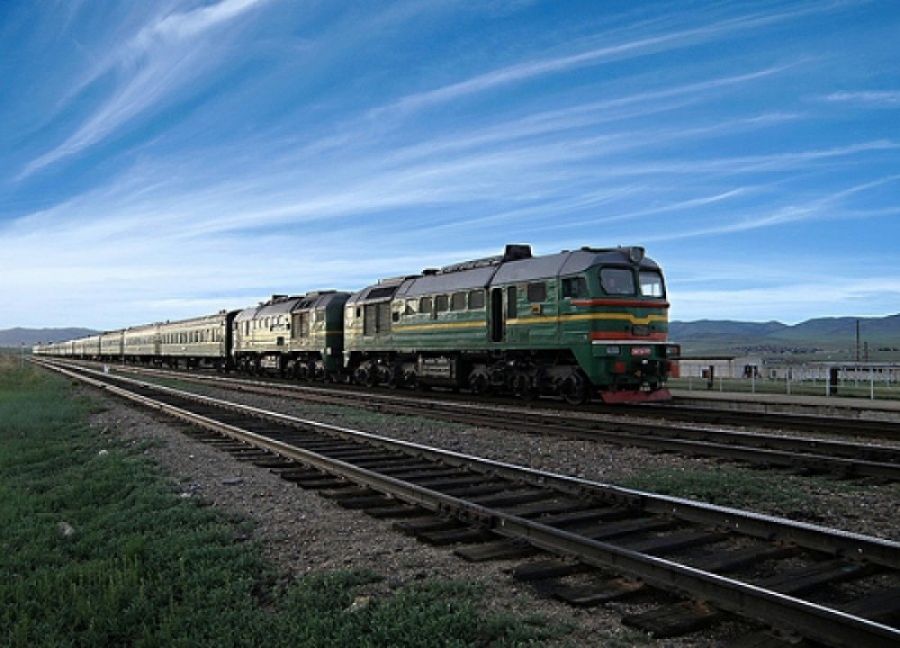
Bagakhangai-Khushig Valley Railway Project launches www.ubpost.mn
On April 25, the government officially launched the Bagakhangai-Khushig Valley branch railway project, which marks the beginning of a major infrastructure initiative that includes building a new Transport Logistics Center 13 kilometers south of the Chinggis Khaan International Airport.
At the opening ceremony, Prime Minister L.Oyun-Erdene declared, “Today, we have opened a new page in history. Since summer is short, if we miss one summer, it is like missing a whole year. We need to plan well in the winter and quickly carry out construction in the summer. Therefore, construction work should be started as early as possible.”
The prime minister outlined an ambitious infrastructure agenda, announcing that work would begin next month on connecting the Gashuunsukhait-Gantsmod port border, followed by projects linking the Shiveekhuren, Bichigt, Khangi and Mandal ports. He confirmed the Erdeneburen hydropower station construction would commence in June as approved at the last cabinet meeting, with work on the Eg River station starting next week.
In the capital region, major road projects including the Tuul highway and two ring roads will soon begin construction. The premier described the railway as “strategically important” and part of efforts to “revive” Hunnu city, noting that investment in the area over the next three years would equal the total investment in Tuv Province over the past three decades. “If we can connect, we will have money, and if we have money, we can build, and by building, we can improve our quality of life. If we can do this, we can also protect our independence,” L.Oyun-Erdene stated, framing the infrastructure push as crucial for national development.
Minister of Road and Transportation Development J.Delgersaikhan provided technical details, revealing that the 150-kilometer railway would significantly reduce traffic congestion. “Every day, residents of the capital spend 144 minutes stuck and waiting at railway crossings. This time will be reduced to 40 minutes from next October,” he said.
The Transport Logistics Center, to be built on 400 hectares of land allocated by Hunnu City officials, will serve as a hub for the new railway with a 25-ton carrying capacity. Private companies will be permitted to construct their own warehouses within the center.
With an initial budget of 840 billion MNT, the project combines 100 billion MNT from Mongolian Railway’s existing funds with bridge financing arranged by the Development Bank in cooperation with five commercial banks. Officials expect increased coal exports through improved border connections to generate revenue for loan repayment. Construction challenges include building a one-kilometer columnar bridge, which is a complex undertaking given Mongolia’s limited pool of only seven qualified bridge construction companies. Some 2,500 domestic workers will build the lower structure, while 20,000 tons of rails will be imported.
Preparatory work including geodetic and geological surveys is complete, with water wells already dug. The unique ridge-top location eliminates the need for land clearance, though a 32-meter excavation in deep land will require specialized mining equipment. Officials emphasized that all construction would use domestic capabilities except for rail imports. As the Mongolian Railway team begins round-the-clock work to complete the project within four months, the Road Development Center will monitor progress.
Ulaanbaatar Mayor Kh.Nyambaatar highlighted how the new railway would solve long-standing urban logistics challenges, particularly the current practice of using the unsuitable and potentially hazardous Tolgoit station for unloading operations. By redirecting freight handling to purpose-built facilities along the new corridor, the project will significantly reduce congestion and safety risks in the capital while supporting broader efforts to decentralize Ulaanbaatar’s overcrowded infrastructure.
Kh.Nyambaatar outlined comprehensive plans for Hunnu City’s development as an eco-friendly urban center, beginning with ambitious geothermal exploration set to commence in August. Drilling will reach 3,000 meters depth in the Sergelen soum area, where geological assessments suggest strong potential for tapping into sustainable heating solutions. “If successful, this initiative could allow Hunnu City to become Mongolia’s first major urban area completely free from coal dependence,” the mayor explained, noting this would represent a major breakthrough in sustainable urban development.
Infrastructure preparations are already underway, with trunk line networks completed and tenders for branch line designs soon to be announced. The city plans to begin road construction next year while simultaneously developing a 300 MW renewable energy complex combining solar, wind and battery storage through innovative public-private partnerships.
‘1.3 trillion MNT project secures funding through bank reforms’
Development Bank Executive Director Z.Narantuya provided financial details, revealing the project’s total 1.3 trillion MNT cost will be supported through enhanced bank capitalization and collaborative financing with five domestic institutions. “With 1.2 trillion MNT in receivables recently settled and plans for domestic and international securities issuance, we have established a robust financial framework for this transformative infrastructure,” Z.Narantuya stated.
The railway itself, featuring 115 dedicated livestock tunnels and requiring 2.5 million cubic meters of earthworks, remains on track for August 25 completion. Its operational launch will initiate a phased transition of freight operations away from urban centers, with complementary highway projects to Dundgovi Province and Songinokhairkhan District already in planning stages.
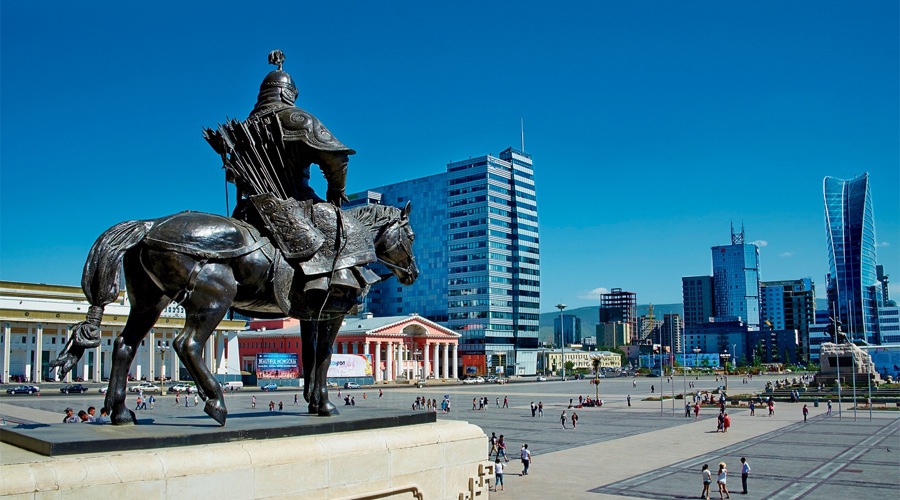
The Mongolian business environment and FDI: Challenges and opportunity www.melvilledalai.com
Nietzsche’s aphorism of “What doesn’t kill you makes you stronger” is my optimistic view about Mongolian business environment,
including foreign investments, although several factors are nearly undermining foreign direct investment and general business environment. You may have encountered or heard about challenges such as corruption, crony capitalism, a weak legal framework, inconsistent law enforcement, and unstable policies and regulations. There are also economic and commercial
drawbacks, including a small market, high risk of currency depreciation, and costly logistics. Larger investors might worry about Mongolia’s geography—sandwiched between Russia and China—and the associated geopolitical risks. Meanwhile, existing investors often face daily hurdles like government bureaucracy, rising nationalism, and erratic application of laws. This list isn’t
exhaustive; it omits “surprises,” originally tied to major events like elections but now occurring more frequently. I’ll discuss a recent surprise later, but first, let’s focus on the key obstacle.
The above-mentioned issues are undeniable and have persisted since the 1990s. But which is the most detrimental? Opinions differ widely, though I’m not here to rank them. Instead, I ask: do these challenges share a common root or cause? I argue that “internal politics” is the primary cause. By this, I mean politically motivated actions, conflicts, inactions, and PR efforts within Mongolia. You might wonder why I focus on internal politics when Mongolia is a proud democracy—the only one
in Central Asia. Indeed, we cherish our democratic status, but as a young democracy, we’ve faced significant political turbulence.
1. THE RECENT SURPRISE: STRATEGIC DEPOSITS
What is the recent surprise? This relates to the interpretation and application of the concept of “Strategic Deposit”. This concept is not a new, but the Minerals Law was amended on 19 April 2024 to revise certain provisions related to Strategic Deposits, aligning them with the amendments to the Constitution. Pursuant to this new amendments under the Minerals Law, the state shall hold up to 34% or 50% of the entity holding the license, free of charge, and potentially without making any investment. Obviously, this creates various uncertainties and suprises, specially with respect to the companies which have been operating and mining. Some could argue this is potentially “expropriation” and others could argue that the state has this power under the Constitution. The both sides have their strong arguments as the relevant implementation, interpretation and process is vague and
subjective to the Parliamentary discretion.
The Objective of these amendments to the Constitution and Minerals Law were ultimately designed to maximize the benefits from natural resources for the benefits of its citizens. See the full article on the link https://www.melvilledalai.com/.../the-mongolian-business...
BY Erdenedalai Odkhuu, Partner

Domestic oil refinery to supply 80,000 tons of jet fuel yearly www.ubpost.mn
During a briefing on April 25, Minister of Industry and Mineral Resources Ts.Tuvaan provided updates on Mongolia’s ambitious oil refinery project, revealing plans to accelerate the timeline for first production. The government now aims to have the refinery operational by the third quarter of 2027, ahead of the originally scheduled first quarter of 2028 target.
Minister Ts.Tuvaan emphasized the project’s national importance, noting the critical need to secure Mongolia’s 1.5 million-ton crude oil supply. Discussions with PetroChina Dachin Tamsag to boost crude oil production to 750,000 tons this year have encountered difficulties, though officials remain committed to achieving this goal.
The project faces multiple challenges that require resolution. Financial reconciliations with PetroChina, including outstanding tax payments, audits and social security contributions not covered by existing agreements, need to be settled. At the local level, cooperation issues persist with provincial and soum leaders, while Mongolian NGOs, particularly women-led organizations, continue voicing concerns about the project. Recent tensions, including Chinese embassy complaints about security incidents, have added another layer of complexity to the bilateral energy cooperation.
Once completed, the refinery will mark a major milestone in Mongolia’s energy independence. With an expected annual production of 80,000 tons of aviation fuel, the facility will allow domestic airlines to source their fuel needs locally rather than relying on imports.
Minister Ts.Tuvaan stressed that overcoming the current obstacles remains essential for Mongolia’s strategic energy projects. The accelerated timeline demonstrates the government’s determination to push forward with this key infrastructure development, even as it works to address the various operational, financial, and diplomatic challenges that have emerged. The success of this project could significantly enhance Mongolia’s energy security and economic self-sufficiency in the coming years.

Business offer from MBD Thailand www.mongolianbusinessdatabase.com
MBD Thailand is offering broad range of food products from Thailand’s famous manufacturers including Ampol Foods, BKC Thai Cuisine and Yan Wal Yun Corporation Group to Mongolian food importers and wholesale companies. Please contact 99066062 contact@mongolianbusinessdatabase.com and dashnyam@mongolianbusinessdatabase.com for information in details.
...
Stakeholder Feedback Workshop: Bank of Mongolia’s ESG Risk Based Supervision Framework 07 May 2025, 09:00 - 12:30 Ulaanbaatar Time | By invitation only www.unescap.org
Mongolia is taking bold steps toward sustainable finance by integrating Environmental, Social, and Governance (ESG) principles into its financial sector. Strong ESG frameworks are critical for managing climate and sustainability risks, boosting transparency, attracting investment, and aligning with global goals like the Paris Agreement and the SDGs.
Following the introduction of ESG reporting guidelines and the move toward mandatory disclosures, the next step is embedding ESG risk management into financial supervision. In collaboration with ESCAP, the Bank of Mongolia is exploring how ESG risks can be systematically identified, assessed, and managed across the banking sector.
Join us for this important workshop as we present the findings of the ESG Risk-Based Supervision Framework study. The sessions will cover the fundamentals of ESG risk supervision, current practices, areas for improvement, and ways the Bank of Mongolia can strengthen its supervisory framework to better manage ESG risks. This is also an opportunity for key stakeholders to provide feedback and help shape the next phase of Mongolia’s sustainable finance journey.
Together, we can build a more resilient, inclusive, and sustainable financial system for Mongolia’s future.
for more information, please contact
Macroeconomic Policy and Financing for Development Division
+66 2 288-1234
escap-mpfd@un.org
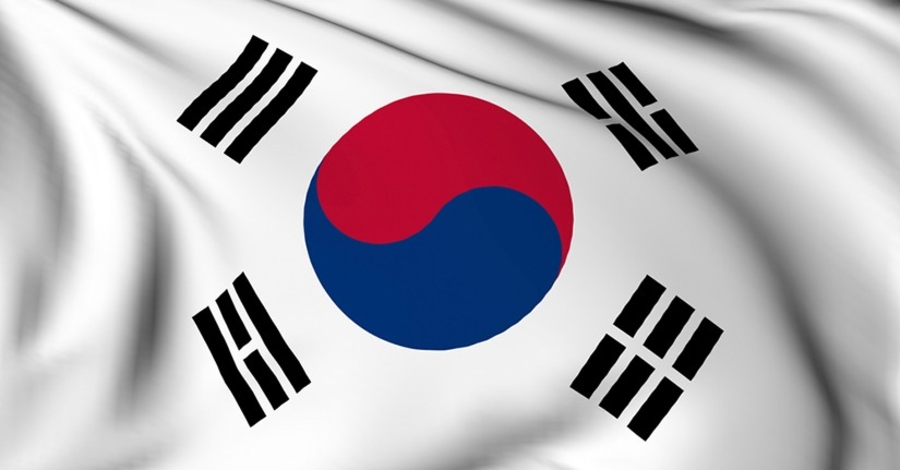
National Assembly speaker to visit Mongolia for parliamentary diplomacy, climate cooperation www.koreajoongangdaily.joins.com
National Assembly Speaker Woo Won-shik will travel to Mongolia on Saturday for parliamentary diplomacy and climate cooperation discussions, his office said.
Woo will hold a series of meetings with top Mongolian officials, including President Ukhnaagiin Khurelsukh and his counterpart, Dashzegve Amarbayasgalan, during the five-day trip.
Woo plans to discuss economic and infrastructure cooperation between Korea and Mongolia and to jointly explore responses to the climate crisis in Northeast Asia.
He will also attend a tree-planting ceremony arranged as part of a bilateral desertification prevention initiative.
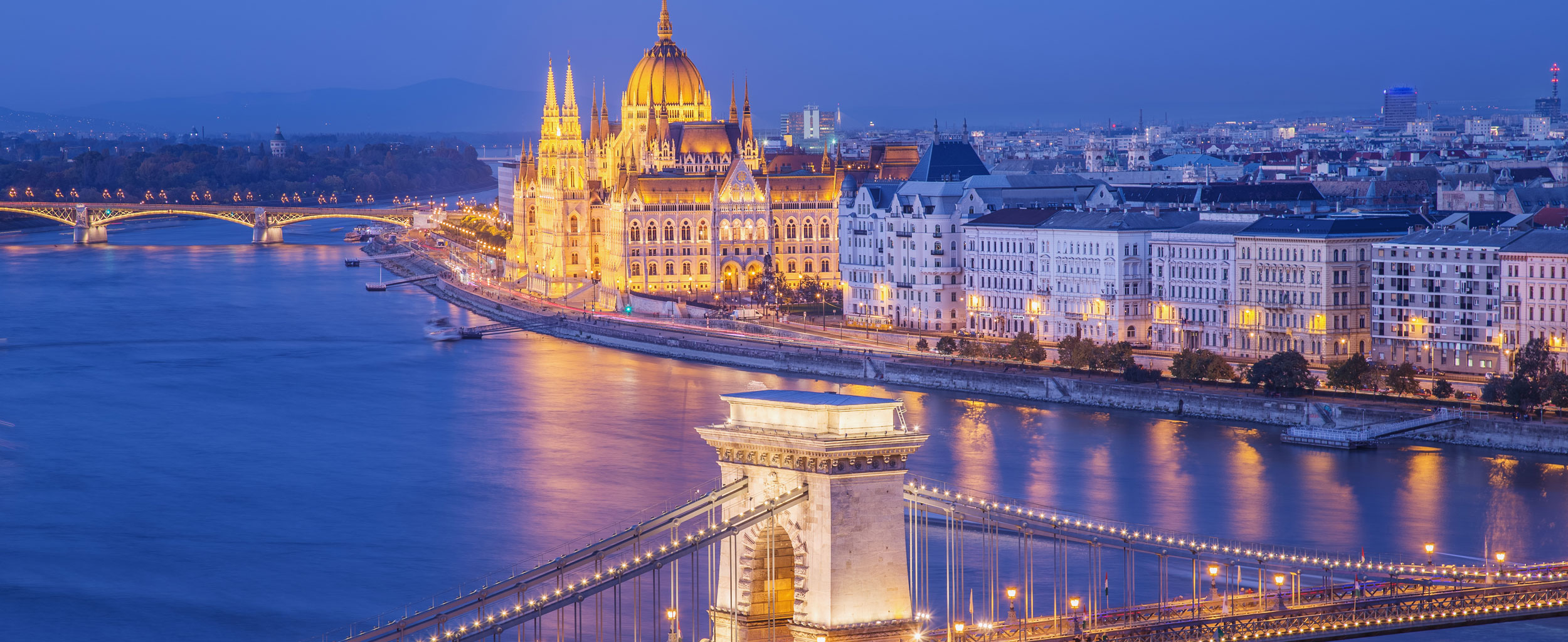
Hungary and Mongolia deepen partnership with new trade and cultural deals www.dailynewshungary.com
Further developing Hungarian-Mongolian relations will have an important role in the government’s Eastern Opening strategy, the minister of foreign affairs and trade said on Friday. Péter Szijjártó spoke at a press conference held jointly with his Mongolian counterpart, Batmunkh Battsetseg, after talks in Budapest, and highlighted the traditionally friendly ties between the two countries as well as their shared cultural and historical heritage. Szijjártó noted a 51 percent increase in bilateral trade turnover this year following another record turnover in 2024. He added that bilateral trade was driven by pharmaceuticals, with Hungarian exports reaching a record high. Mongolia’s major economic reforms offer further opportunities for bilateral cooperation, Szijjártó said. The two ministers agreed to convene their countries’ mixed economic committee this year to assess how Hungarian companies could participate in farming, food production and water management projects in Mongolia, Szijjártó said. Meanwhile, Szijjártó said Hungarian universities offered 200 scholarships to Mongolian students each year, and welcomed that Mongolia’s National University has launched Hungarian language courses. Conversely, Mongolian is taught at Budapest’s ELTE university, the minister added. Peace needed in Ukraine On another subject, Szijjártó said Mongolia was also a member of the international peace camp, and both countries advocated peace and keeping communication channels open. “We have clearly been proven right in promoting peace and urging peace talks … the war in Ukraine has no solution on the battlefield,” he said. “A settlement can only be reached at the negotiating table, which requires the parties to be in communication. It is regrettable and dangerous that some governments and political leaders seek to undermine the path to peace,” Szijjártó said, adding that prolonging the war would involve “further and further deaths”. Later on Friday, the Hungarian National Theatre said in a statement that it had launched long-term cooperation with the Mongolian National Drama Theatre, “aiming to mutually enrich the two countries’ theatre culture and to deepen professional and educational ties.” The directors of the two theatres, Attila Vidnyánszky for Hungary and Naranbaatar Namnan for Mongolia, signed the relevant agreement on Friday, it said. Signatories pledged to build strong professional ties, to exchange knowledge and experience, to attend international events together and support student exchange. The cooperation’s flagship production will be a piece called “Attila”, to be staged in 2027, the statement said.
...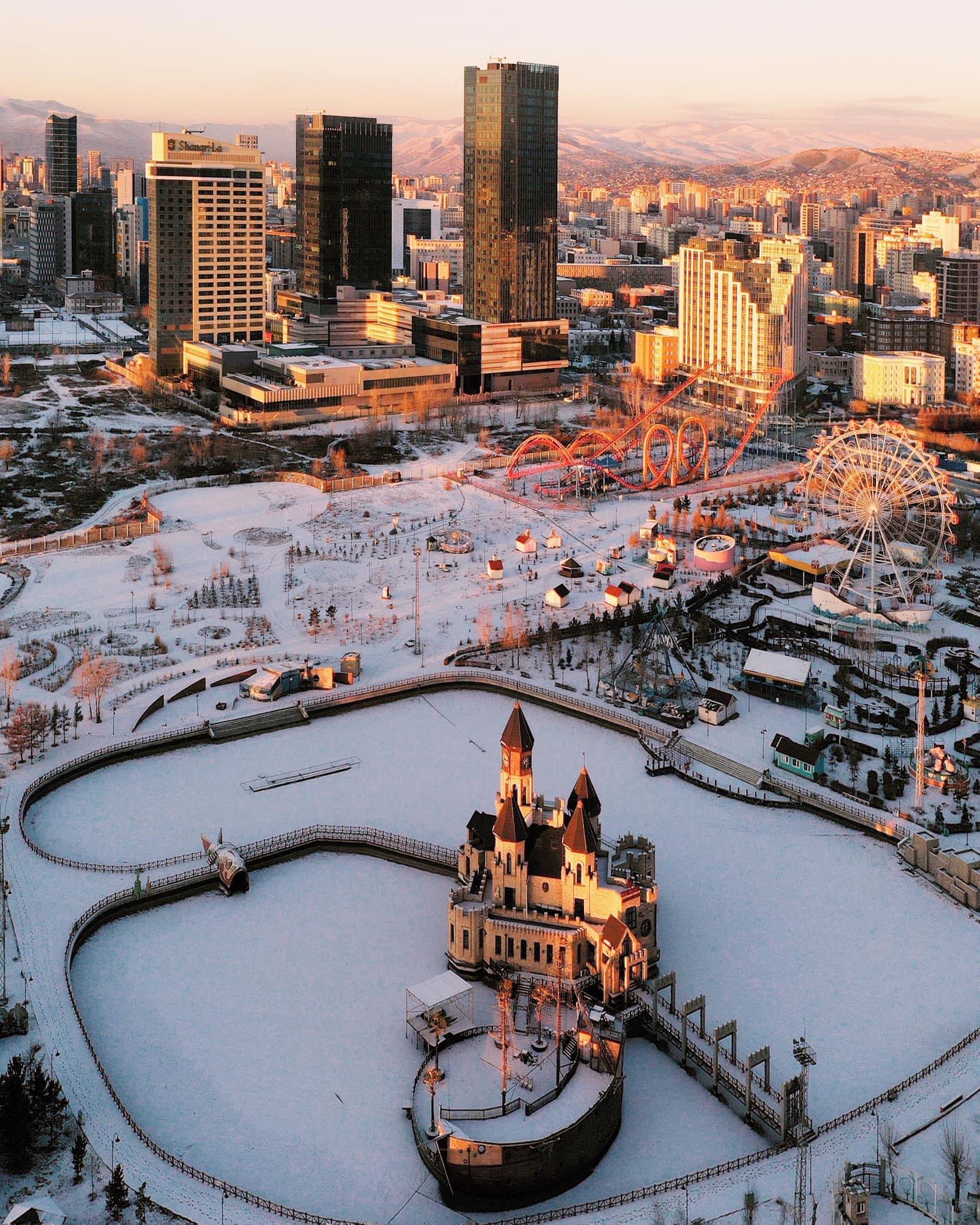
The World's Coldest Capital City Is A Foodie Paradise In Asia With Youthful Vibes And Trendy Attractions www.islands.com
You'd probably think that few people would want to live in a city that averages about 3 degrees Fahrenheit during the day (-14 at night) for months of the year. This is the case in most parts of the world, but not in the world's coldest capital city, Ulaanbaatar, Mongolia. Often written as Ulan Bator and called UB by locals, Ulaanbaatar has transformed into a boomtown on the Tuul River and is home to nearly half of Mongolia's population of 3.5 million. Unofficially, though, the city's population is likely greater, as many nomads from the countryside have recently moved to the city's outskirts.
The city is bursting with a youthful energy and some of the biggest worldwide food trends, creating a vibrant restaurant scene. A few decades ago, these scenes of foreign foods and private enterprise would have been almost unimaginable. Around 100 years ago, the new Soviet Union tremendously influenced Mongolia's development as a nation, helping Mongolia remove Chinese influence and establishing a Sovie-oriented Mongolian People's Republic in 1924. In light of a turn toward the USSR, Mongolia renamed its capital city Ulaanbaatar, meaning "red hero," and later adopted the Cyrillic alphabet. Although Mongolia's political climate changed in the 1980s, the country remained politically isolated and economically dependent on the USSR until the Soviet Union fell. In the past 30 years, Mongolia has become a democratic country and opened up to the world. Tourism is growing rapidly, but don't worry, you still have plenty of room to explore Mongolia's uncrowded and underrated natural wonders.
Mongolian diets traditionally consist of livestock and animal products from the "Five Snouts," which change depending on the local geography and the season. During the warmer months, Mongolians consume white dairy and milk products, while in winter, hearty red meat dishes dominate the menu. Although the most authentic way to try local food is in the countryside with, in my experience, a truly hospitable host family, local restaurants such as Modern Nomads and Khaan Buuz, and machine-processed dairy products mean that traditional foods are available year-round in UB. Traditional Mongolian milk beverages suutei tsai (milk tea) and airag (mare's milk) are considerably more sour than cow's milk and are often enjoyed communally. Trying them will endear you to locals, but take it slow.
In Ulaanbaatar, you sadly won't find a Big Mac. However, the city boasts an incredible variety of international cuisines with a local flair, including tasty coffee, sashimi, and even tacos. Millie's Espresso has been open for over 20 years, and per Google Maps and local experts, it has a killer breakfast. Right next door, La Rosa's killer tapas are just waiting for you to post as you crack open your favorite board game or a beer.
Despite Mongolia's cuisine being quite different than India's, the most vegetarian-friendly country in the world, Ulaanbaatar does have vegetarian and vegan restaurants. The Loving Hut serves vegan versions of traditional and foreign cuisines across the city, along with picture menus. In other restaurants, dishes such as buuz and tsuivan can be served without meat, though the staff may try to replace the meat with another ingredient, such as mushrooms.
Although Mongolia's culture keeps a high regard and respect for traditions and heritage, especially its music, the country's youth continually push the envelope to express themselves and expand opportunities for travel and business. Pop culture, especially Korean culture, has permeated the country along with Korean supermarkets and convenience stores, adding a dash of convenience and cool. Though Ulaanbaatar does not formally have an arts district, the city has tremendous Soviet murals and art museums throughout. The Zanabazar Museum of Fine Arts, the city's first European-style building back in 1905, houses an incredible collection of ornate religious paintings, tapestries, and depictions of the past. On Zaisan Hill south of the city, you'll find one of the best places to watch the sun rise or set, along with a Soviet depiction of the brotherhood formed between Mongolia and the USSR decades ago. Ulaanbaatar also has a burgeoning live music scene, with both hip-hop and rock being symbols of a free, post-Communist Mongolia.
Mongolia is still very much the Wild West and far off the beaten path for many travelers, though that may be about to change. United is adding routes from Tokyo Narita to Ulaanbaatar starting May 1, 2025, and is modernizing its aircraft fleet to include creature comforts. Moreover, Mongolia is visa-free for many nationalities, including the U.S., Canada, the U.K., and much of Europe, though many other nationalities can apply for an eVisa. In my experience, downloading a free local phrasebook or language course is a must-do if you want to meet locals on your trip.
By Dave Bowling

AmCham Mongolia Condemns Recent Assault on Badrakh Energy Executive www.itoim.mn
The American Chamber of Commerce in Mongolia (AmCham Mongolia) strongly condemns the violent confrontation and physical assault on senior leadership of our member Badrakh Energy LLC, during a meeting on April 21 with a group of opposing uranium mining. This act of violence is unacceptable and undermines the principles of lawful protest and civil discourse.
AmCham Mongolia reaffirms its commitment to upholding the rule of law, the safety of individuals, and the protection of lawful business operations
While expressing different opinions and concerns is a legitimate action in democratic societies, dialogues and discussion between any parties should be conducted in on mutual respect and shared goal of resolving the core issues, seeking factual truth and accountability.
We are deeply concerned by the string of irrational and unlawful attempts to disrupt operations of our members by communities and involved parties, resorting to physical confrontations.
AmCham Mongolia stands in solidarity with Badrakh Energy and all businesses operating within the legal framework of Mongolia. We urge all parties to respect the rights of individuals and organizations and to resolve differences through peaceful and lawful means.

FSS warns of investment scam impersonating Mongolia's G Bank for high-yield bonds www.biz.chosun.com
The Financial Supervisory Service recently issued a "consumer alert" noting that advertisements for investment scams claiming to sell high-yield offshore bonds by Mongolia's largest bank have spread, primarily online.
The FSS stated on the 23rd that claims made on social media (SNS) that investing in dollar-denominated bonds issued by Mongolia's G Bank would yield a stable high return of 11% annually are misleading and that this is a non-existent investment scam.
According to the FSS, it appears that the illegal entity exploited the high-return expectations for Mongolia, an emerging country, and the difficulty in verifying the existence of the bank.
Recently, G Bank in Mongolia confirmed an investment scam using its name and requested action from the FSS through the Ministry of Foreign Affairs. G Bank conveyed that it does not sell bonds directly in Korea through the South Korean Embassy in Mongolia.
They posed as a legitimate financial entity known as G Bond Company, falsely presenting it as a regular financial firm and posting numerous misleading articles on YouTube and SNS.
Through their postings, they emphasized that due to the characteristics of Mongolia's benchmark interest rate (approximately 10% at the end of last year), the dollar-denominated bonds sold by G Bond Company could generate a high interest income of 11.7% annually and that the risk of exchange rate losses due to fluctuations is low. They also posted fake investment success stories and tips related to G Bonds online, attracting investors with dozens of positive comments.
Subsequently, the illegal entity induced investment deposits into accounts under corporate names similar to their registration, similar to entering personal information on the G Bond Company website, before disappearing. The accounts are believed to be "shell accounts," established under a corporation with a name similar to the impersonated company to avoid suspicion.
An FSS official said, "Even foreign commercial banks are illegal if they sell bonds directly in the country without authorization under the law," and added, "If online advertisements claim that investing in overseas dollar-denominated bonds can yield stable high returns, it may be an investment scam, so caution is advised."
BY
Kang Jung-a
...
- «
- 1
- 2
- 3
- 4
- 5
- 6
- 7
- 8
- 9
- 10
- 11
- 12
- 13
- 14
- 15
- 16
- 17
- 18
- 19
- 20
- 21
- 22
- 23
- 24
- 25
- 26
- 27
- 28
- 29
- 30
- 31
- 32
- 33
- 34
- 35
- 36
- 37
- 38
- 39
- 40
- 41
- 42
- 43
- 44
- 45
- 46
- 47
- 48
- 49
- 50
- 51
- 52
- 53
- 54
- 55
- 56
- 57
- 58
- 59
- 60
- 61
- 62
- 63
- 64
- 65
- 66
- 67
- 68
- 69
- 70
- 71
- 72
- 73
- 74
- 75
- 76
- 77
- 78
- 79
- 80
- 81
- 82
- 83
- 84
- 85
- 86
- 87
- 88
- 89
- 90
- 91
- 92
- 93
- 94
- 95
- 96
- 97
- 98
- 99
- 100
- 101
- 102
- 103
- 104
- 105
- 106
- 107
- 108
- 109
- 110
- 111
- 112
- 113
- 114
- 115
- 116
- 117
- 118
- 119
- 120
- 121
- 122
- 123
- 124
- 125
- 126
- 127
- 128
- 129
- 130
- 131
- 132
- 133
- 134
- 135
- 136
- 137
- 138
- 139
- 140
- 141
- 142
- 143
- 144
- 145
- 146
- 147
- 148
- 149
- 150
- 151
- 152
- 153
- 154
- 155
- 156
- 157
- 158
- 159
- 160
- 161
- 162
- 163
- 164
- 165
- 166
- 167
- 168
- 169
- 170
- 171
- 172
- 173
- 174
- 175
- 176
- 177
- 178
- 179
- 180
- 181
- 182
- 183
- 184
- 185
- 186
- 187
- 188
- 189
- 190
- 191
- 192
- 193
- 194
- 195
- 196
- 197
- 198
- 199
- 200
- 201
- 202
- 203
- 204
- 205
- 206
- 207
- 208
- 209
- 210
- 211
- 212
- 213
- 214
- 215
- 216
- 217
- 218
- 219
- 220
- 221
- 222
- 223
- 224
- 225
- 226
- 227
- 228
- 229
- 230
- 231
- 232
- 233
- 234
- 235
- 236
- 237
- 238
- 239
- 240
- 241
- 242
- 243
- 244
- 245
- 246
- 247
- 248
- 249
- 250
- 251
- 252
- 253
- 254
- 255
- 256
- 257
- 258
- 259
- 260
- 261
- 262
- 263
- 264
- 265
- 266
- 267
- 268
- 269
- 270
- 271
- 272
- 273
- 274
- 275
- 276
- 277
- 278
- 279
- 280
- 281
- 282
- 283
- 284
- 285
- 286
- 287
- 288
- 289
- 290
- 291
- 292
- 293
- 294
- 295
- 296
- 297
- 298
- 299
- 300
- 301
- 302
- 303
- 304
- 305
- 306
- 307
- 308
- 309
- 310
- 311
- 312
- 313
- 314
- 315
- 316
- 317
- 318
- 319
- 320
- 321
- 322
- 323
- 324
- 325
- 326
- 327
- 328
- 329
- 330
- 331
- 332
- 333
- 334
- 335
- 336
- 337
- 338
- 339
- 340
- 341
- 342
- 343
- 344
- 345
- 346
- 347
- 348
- 349
- 350
- 351
- 352
- 353
- 354
- 355
- 356
- 357
- 358
- 359
- 360
- 361
- 362
- 363
- 364
- 365
- 366
- 367
- 368
- 369
- 370
- 371
- 372
- 373
- 374
- 375
- 376
- 377
- 378
- 379
- 380
- 381
- 382
- 383
- 384
- 385
- 386
- 387
- 388
- 389
- 390
- 391
- 392
- 393
- 394
- 395
- 396
- 397
- 398
- 399
- 400
- 401
- 402
- 403
- 404
- 405
- 406
- 407
- 408
- 409
- 410
- 411
- 412
- 413
- 414
- 415
- 416
- 417
- 418
- 419
- 420
- 421
- 422
- 423
- 424
- 425
- 426
- 427
- 428
- 429
- 430
- 431
- 432
- 433
- 434
- 435
- 436
- 437
- 438
- 439
- 440
- 441
- 442
- 443
- 444
- 445
- 446
- 447
- 448
- 449
- 450
- 451
- 452
- 453
- 454
- 455
- 456
- 457
- 458
- 459
- 460
- 461
- 462
- 463
- 464
- 465
- 466
- 467
- 468
- 469
- 470
- 471
- 472
- 473
- 474
- 475
- 476
- 477
- 478
- 479
- 480
- 481
- 482
- 483
- 484
- 485
- 486
- 487
- 488
- 489
- 490
- 491
- 492
- 493
- 494
- 495
- 496
- 497
- 498
- 499
- 500
- 501
- 502
- 503
- 504
- 505
- 506
- 507
- 508
- 509
- 510
- 511
- 512
- 513
- 514
- 515
- 516
- 517
- 518
- 519
- 520
- 521
- 522
- 523
- 524
- 525
- 526
- 527
- 528
- 529
- 530
- 531
- 532
- 533
- 534
- 535
- 536
- 537
- 538
- 539
- 540
- 541
- 542
- 543
- 544
- 545
- 546
- 547
- 548
- 549
- 550
- 551
- 552
- 553
- 554
- 555
- 556
- 557
- 558
- 559
- 560
- 561
- 562
- 563
- 564
- 565
- 566
- 567
- 568
- 569
- 570
- 571
- 572
- 573
- 574
- 575
- 576
- 577
- 578
- 579
- 580
- 581
- 582
- 583
- 584
- 585
- 586
- 587
- 588
- 589
- 590
- 591
- 592
- 593
- 594
- 595
- 596
- 597
- 598
- 599
- 600
- 601
- 602
- 603
- 604
- 605
- 606
- 607
- 608
- 609
- 610
- 611
- 612
- 613
- 614
- 615
- 616
- 617
- 618
- 619
- 620
- 621
- 622
- 623
- 624
- 625
- 626
- 627
- 628
- 629
- 630
- 631
- 632
- 633
- 634
- 635
- 636
- 637
- 638
- 639
- 640
- 641
- 642
- 643
- 644
- 645
- 646
- 647
- 648
- 649
- 650
- 651
- 652
- 653
- 654
- 655
- 656
- 657
- 658
- 659
- 660
- 661
- 662
- 663
- 664
- 665
- 666
- 667
- 668
- 669
- 670
- 671
- 672
- 673
- 674
- 675
- 676
- 677
- 678
- 679
- 680
- 681
- 682
- 683
- 684
- 685
- 686
- 687
- 688
- 689
- 690
- 691
- 692
- 693
- 694
- 695
- 696
- 697
- 698
- 699
- 700
- 701
- 702
- 703
- 704
- 705
- 706
- 707
- 708
- 709
- 710
- 711
- 712
- 713
- 714
- 715
- 716
- 717
- 718
- 719
- 720
- 721
- 722
- 723
- 724
- 725
- 726
- 727
- 728
- 729
- 730
- 731
- 732
- 733
- 734
- 735
- 736
- 737
- 738
- 739
- 740
- 741
- 742
- 743
- 744
- 745
- 746
- 747
- 748
- 749
- 750
- 751
- 752
- 753
- 754
- 755
- 756
- 757
- 758
- 759
- 760
- 761
- 762
- 763
- 764
- 765
- 766
- 767
- 768
- 769
- 770
- 771
- 772
- 773
- 774
- 775
- 776
- 777
- 778
- 779
- 780
- 781
- 782
- 783
- 784
- 785
- 786
- 787
- 788
- 789
- 790
- 791
- 792
- 793
- 794
- 795
- 796
- 797
- 798
- 799
- 800
- 801
- 802
- 803
- 804
- 805
- 806
- 807
- 808
- 809
- 810
- 811
- 812
- 813
- 814
- 815
- 816
- 817
- 818
- 819
- 820
- 821
- 822
- 823
- 824
- 825
- 826
- 827
- 828
- 829
- 830
- 831
- 832
- 833
- 834
- 835
- 836
- 837
- 838
- 839
- 840
- 841
- 842
- 843
- 844
- 845
- 846
- 847
- 848
- 849
- 850
- 851
- 852
- 853
- 854
- 855
- 856
- 857
- 858
- 859
- 860
- 861
- 862
- 863
- 864
- 865
- 866
- 867
- 868
- 869
- 870
- 871
- 872
- 873
- 874
- 875
- 876
- 877
- 878
- 879
- 880
- 881
- 882
- 883
- 884
- 885
- 886
- 887
- 888
- 889
- 890
- 891
- 892
- 893
- 894
- 895
- 896
- 897
- 898
- 899
- 900
- 901
- 902
- 903
- 904
- 905
- 906
- 907
- 908
- 909
- 910
- 911
- 912
- 913
- 914
- 915
- 916
- 917
- 918
- 919
- 920
- 921
- 922
- 923
- 924
- 925
- 926
- 927
- 928
- 929
- 930
- 931
- 932
- 933
- 934
- 935
- 936
- 937
- 938
- 939
- 940
- 941
- 942
- 943
- 944
- 945
- 946
- 947
- 948
- 949
- 950
- 951
- 952
- 953
- 954
- 955
- 956
- 957
- 958
- 959
- 960
- 961
- 962
- 963
- 964
- 965
- 966
- 967
- 968
- 969
- 970
- 971
- 972
- 973
- 974
- 975
- 976
- 977
- 978
- 979
- 980
- 981
- 982
- 983
- 984
- 985
- 986
- 987
- 988
- 989
- 990
- 991
- 992
- 993
- 994
- 995
- 996
- 997
- 998
- 999
- 1000
- 1001
- 1002
- 1003
- 1004
- 1005
- 1006
- 1007
- 1008
- 1009
- 1010
- 1011
- 1012
- 1013
- 1014
- 1015
- 1016
- 1017
- 1018
- 1019
- 1020
- 1021
- 1022
- 1023
- 1024
- 1025
- 1026
- 1027
- 1028
- 1029
- 1030
- 1031
- 1032
- 1033
- 1034
- 1035
- 1036
- 1037
- 1038
- 1039
- 1040
- 1041
- 1042
- 1043
- 1044
- 1045
- 1046
- 1047
- 1048
- 1049
- 1050
- 1051
- 1052
- 1053
- 1054
- 1055
- 1056
- 1057
- 1058
- 1059
- 1060
- 1061
- 1062
- 1063
- 1064
- 1065
- 1066
- 1067
- 1068
- 1069
- 1070
- 1071
- 1072
- 1073
- 1074
- 1075
- 1076
- 1077
- 1078
- 1079
- 1080
- 1081
- 1082
- 1083
- 1084
- 1085
- 1086
- 1087
- 1088
- 1089
- 1090
- 1091
- 1092
- 1093
- 1094
- 1095
- 1096
- 1097
- 1098
- 1099
- 1100
- 1101
- 1102
- 1103
- 1104
- 1105
- 1106
- 1107
- 1108
- 1109
- 1110
- 1111
- 1112
- 1113
- 1114
- 1115
- 1116
- 1117
- 1118
- 1119
- 1120
- 1121
- 1122
- 1123
- 1124
- 1125
- 1126
- 1127
- 1128
- 1129
- 1130
- 1131
- 1132
- 1133
- 1134
- 1135
- 1136
- 1137
- 1138
- 1139
- 1140
- 1141
- 1142
- 1143
- 1144
- 1145
- 1146
- 1147
- 1148
- 1149
- 1150
- 1151
- 1152
- 1153
- 1154
- 1155
- 1156
- 1157
- 1158
- 1159
- 1160
- 1161
- 1162
- 1163
- 1164
- 1165
- 1166
- 1167
- 1168
- 1169
- 1170
- 1171
- 1172
- 1173
- 1174
- 1175
- 1176
- 1177
- 1178
- 1179
- 1180
- 1181
- 1182
- 1183
- 1184
- 1185
- 1186
- 1187
- 1188
- 1189
- 1190
- 1191
- 1192
- 1193
- 1194
- 1195
- 1196
- 1197
- 1198
- 1199
- 1200
- 1201
- 1202
- 1203
- 1204
- 1205
- 1206
- 1207
- 1208
- 1209
- 1210
- 1211
- 1212
- 1213
- 1214
- 1215
- 1216
- 1217
- 1218
- 1219
- 1220
- 1221
- 1222
- 1223
- 1224
- 1225
- 1226
- 1227
- 1228
- 1229
- 1230
- 1231
- 1232
- 1233
- 1234
- 1235
- 1236
- 1237
- 1238
- 1239
- 1240
- 1241
- 1242
- 1243
- 1244
- 1245
- 1246
- 1247
- 1248
- 1249
- 1250
- 1251
- 1252
- 1253
- 1254
- 1255
- 1256
- 1257
- 1258
- 1259
- 1260
- 1261
- 1262
- 1263
- 1264
- 1265
- 1266
- 1267
- 1268
- 1269
- 1270
- 1271
- 1272
- 1273
- 1274
- 1275
- 1276
- 1277
- 1278
- 1279
- 1280
- 1281
- 1282
- 1283
- 1284
- 1285
- 1286
- 1287
- 1288
- 1289
- 1290
- 1291
- 1292
- 1293
- 1294
- 1295
- 1296
- 1297
- 1298
- 1299
- 1300
- 1301
- 1302
- 1303
- 1304
- 1305
- 1306
- 1307
- 1308
- 1309
- 1310
- 1311
- 1312
- 1313
- 1314
- 1315
- 1316
- 1317
- 1318
- 1319
- 1320
- 1321
- 1322
- 1323
- 1324
- 1325
- 1326
- 1327
- 1328
- 1329
- 1330
- 1331
- 1332
- 1333
- 1334
- 1335
- 1336
- 1337
- 1338
- 1339
- 1340
- 1341
- 1342
- 1343
- 1344
- 1345
- 1346
- 1347
- 1348
- 1349
- 1350
- 1351
- 1352
- 1353
- 1354
- 1355
- 1356
- 1357
- 1358
- 1359
- 1360
- 1361
- 1362
- 1363
- 1364
- 1365
- 1366
- 1367
- 1368
- 1369
- 1370
- 1371
- 1372
- 1373
- 1374
- 1375
- 1376
- 1377
- 1378
- 1379
- 1380
- 1381
- 1382
- 1383
- 1384
- 1385
- 1386
- 1387
- 1388
- 1389
- 1390
- 1391
- 1392
- 1393
- 1394
- 1395
- 1396
- 1397
- 1398
- 1399
- 1400
- 1401
- 1402
- 1403
- 1404
- 1405
- 1406
- 1407
- 1408
- 1409
- 1410
- 1411
- 1412
- 1413
- 1414
- 1415
- 1416
- 1417
- 1418
- 1419
- 1420
- 1421
- 1422
- 1423
- 1424
- 1425
- 1426
- 1427
- 1428
- 1429
- 1430
- 1431
- 1432
- 1433
- 1434
- 1435
- 1436
- 1437
- 1438
- 1439
- 1440
- 1441
- 1442
- 1443
- 1444
- 1445
- 1446
- 1447
- 1448
- 1449
- 1450
- 1451
- 1452
- 1453
- 1454
- 1455
- 1456
- 1457
- 1458
- 1459
- 1460
- 1461
- 1462
- 1463
- 1464
- 1465
- 1466
- 1467
- 1468
- 1469
- 1470
- 1471
- 1472
- 1473
- 1474
- 1475
- 1476
- 1477
- 1478
- 1479
- 1480
- 1481
- 1482
- 1483
- 1484
- 1485
- 1486
- 1487
- 1488
- 1489
- 1490
- 1491
- 1492
- 1493
- 1494
- 1495
- 1496
- 1497
- 1498
- 1499
- 1500
- 1501
- 1502
- 1503
- 1504
- 1505
- 1506
- 1507
- 1508
- 1509
- 1510
- 1511
- 1512
- 1513
- 1514
- 1515
- 1516
- 1517
- 1518
- 1519
- 1520
- 1521
- 1522
- 1523
- 1524
- 1525
- 1526
- 1527
- 1528
- 1529
- 1530
- 1531
- 1532
- 1533
- 1534
- 1535
- 1536
- 1537
- 1538
- 1539
- 1540
- 1541
- 1542
- 1543
- 1544
- 1545
- 1546
- 1547
- 1548
- 1549
- 1550
- 1551
- 1552
- 1553
- 1554
- 1555
- 1556
- 1557
- 1558
- 1559
- 1560
- 1561
- 1562
- 1563
- 1564
- 1565
- 1566
- 1567
- 1568
- 1569
- 1570
- 1571
- 1572
- 1573
- 1574
- 1575
- 1576
- 1577
- 1578
- 1579
- 1580
- 1581
- 1582
- 1583
- 1584
- 1585
- 1586
- 1587
- 1588
- 1589
- 1590
- 1591
- 1592
- 1593
- 1594
- 1595
- 1596
- 1597
- 1598
- 1599
- 1600
- 1601
- 1602
- 1603
- 1604
- 1605
- 1606
- 1607
- 1608
- 1609
- 1610
- 1611
- 1612
- 1613
- 1614
- 1615
- 1616
- 1617
- 1618
- 1619
- 1620
- 1621
- 1622
- 1623
- 1624
- 1625
- 1626
- 1627
- 1628
- 1629
- 1630
- 1631
- 1632
- 1633
- 1634
- 1635
- 1636
- 1637
- 1638
- 1639
- 1640
- 1641
- 1642
- 1643
- 1644
- 1645
- 1646
- 1647
- 1648
- 1649
- 1650
- 1651
- 1652
- 1653
- 1654
- 1655
- 1656
- 1657
- 1658
- 1659
- 1660
- 1661
- 1662
- 1663
- 1664
- 1665
- 1666
- 1667
- 1668
- 1669
- 1670
- 1671
- 1672
- 1673
- 1674
- 1675
- 1676
- 1677
- 1678
- 1679
- 1680
- 1681
- 1682
- 1683
- 1684
- 1685
- 1686
- 1687
- 1688
- 1689
- 1690
- 1691
- 1692
- 1693
- 1694
- 1695
- 1696
- 1697
- 1698
- 1699
- 1700
- 1701
- 1702
- 1703
- 1704
- 1705
- 1706
- 1707
- 1708
- 1709
- 1710
- 1711
- 1712
- 1713
- 1714
- 1715
- 1716
- 1717
- 1718
- 1719
- 1720
- 1721
- 1722
- 1723
- 1724
- »






